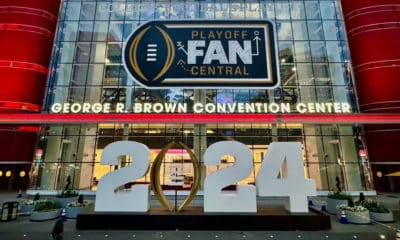On the heels of the last newsletter, in which I recounted the Supreme Court’s (SCOTUS) June 18 announcement of its unanimous decision in favor of the sign industry in Reed v. Town of Gilbert, I had planned to focus this week’s newsletter on unrelated, sign-code news. However, the abundance of action taken following The Reed decision compelled me to recap these headlines. The scenario recounted below will almost certainly be repeated many more times nationwide. We’ll feature a detailed breakdown of the Reed in our August issue, which will include excerpts from the SCOTUS proceedings and analysis by Alan Weinstin, a land-use and sign-code expert. The news:
• Three Georgia counties – Cherokee, Forsyth and Hall, all of which are in or near the metro-Atlanta area – enacted or are considering sign-permit moratoriums following the Reed case. In Cherokee, the county’s legal advisor suggested a 30-day permit moratorium. Forsyth County enacted an unspecified moratorium, pending a review by their legal counsel in order to determine its length; according to accesswdun.com, Hall County Commission chairman Dick Mecum wants the county’s sign ordinance definitively resulted by the Commission’s September meeting.
• In Garfield Heights, OH, www.cleveland.com reported that, as a result of the decision, a lower-court ruling had been overturned, and Frank Wagner won the right to return his sign criticizing a local councilwoman back to his lawn. Originally, the city told Wagner his sign violated the local ordinance’s aesthetic standard, and a four-year battle ensued. The article noted that Wagner didn’t plan to restore his sign, but commented, “But now I know I have the right, and so does anybody else who wants to.”
• Norfolk, VA-based Central Radio Co. had its lawsuit against the city revived. The city had ordered the company to take down a sign that criticized the city for using eminent domain to take their property and annex it to Old Dominion Univ. The 4th U.S. Circuit Court of Appeals had overturned the suit, but as a result of the Reed decision, SCOTUS remanded the case back to the 4th Circuit.
The Reed decision ostensibly creates a strict-scrutiny standard that will compel most local and county officials to reevaluate their sign codes. Here’s hoping that these revisions are handled efficiently, but thoughtfully. Haphazard code changes may cause more damage than the free-speech offenses prescribed in the original offenses.

 Photo Gallery1 week ago
Photo Gallery1 week ago
 Ask Signs of the Times2 weeks ago
Ask Signs of the Times2 weeks ago
 Paula Fargo6 days ago
Paula Fargo6 days ago
 Real Deal3 days ago
Real Deal3 days ago
 Benchmarks2 weeks ago
Benchmarks2 weeks ago
 Photo Gallery6 days ago
Photo Gallery6 days ago
 Women in Signs2 weeks ago
Women in Signs2 weeks ago
 Women in Signs1 week ago
Women in Signs1 week ago















